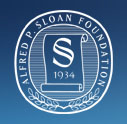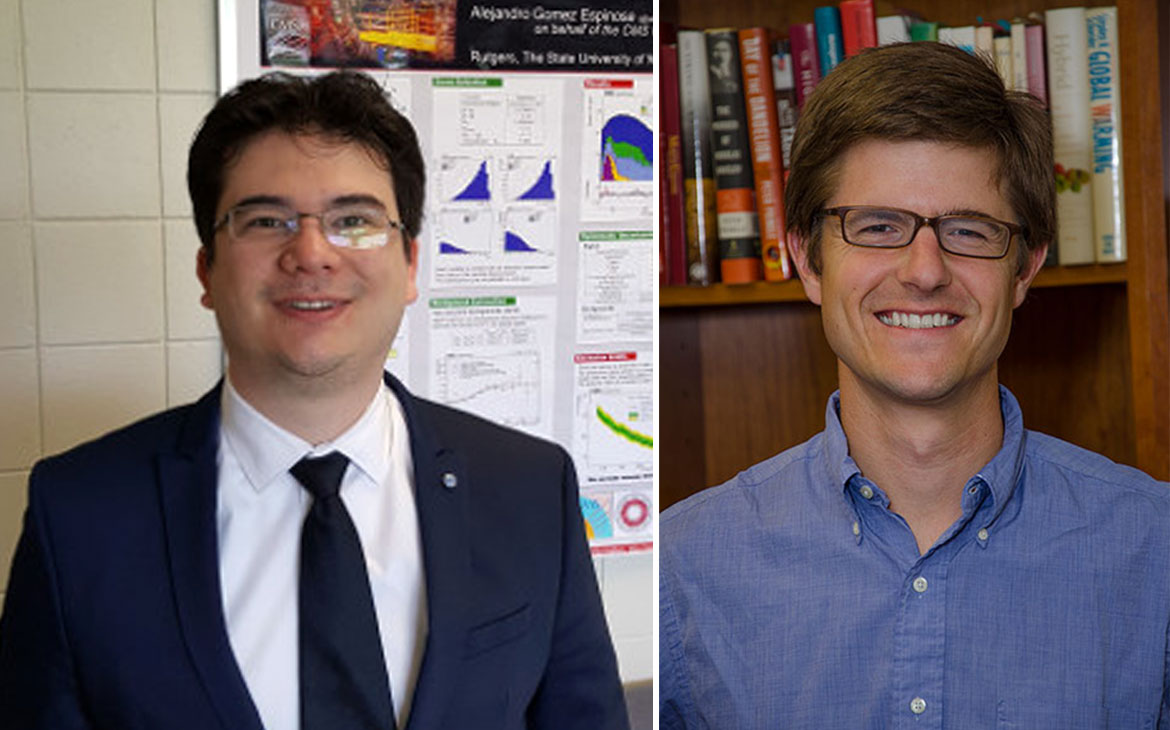Experts in high energy physics, marine science to receive $50,000 awards.
Two assistant professors who recently joined Rutgers are already making names for themselves in their fields, whether by helping to explain the makeup of mysterious dark matter in the universe or examining how climate-induced changes to fish migration patterns disrupt commercial and recreational fishing.
One prestigious organization that recognizes the early successes and future potential of these young faculty members is the Sloan Foundation, which this week is awarding each of them $50,000 fellowships to enhance their research programs.
The professors are John Paul Chou in the Department of Physics and Astronomy, School of Arts and Sciences, and Malin Pinsky, in the Department of Ecology, Evolution and Natural Resources, School of Environmental and Biological Sciences. Pinsky is also affiliated with the Institute of Marine and Coastal Sciences.
Chou joined Rutgers in 2011, after doing postdoctoral research at Brown University and earning a doctorate in physics at Harvard University. He is coordinating the search for exotic “new physics” at the Large Hadron Collider’s CMS experiment, a collection of instruments that detect subatomic particles spewing from proton collisions in the world’s most powerful atom smasher. The term “new physics” refers to ideas that extend beyond the field’s standard model that describes elementary particles of matter and how they interact.
“We see evidence of dark matter in the universe, and this begs for a particle explanation,” said Chou. He also cited the widely publicized Higgs boson discovery in 2012, which was the last piece of the standard model to be observed. Yet to understand several aspects of the Higgs particle, he says “we have to appeal to new physics.”
Chou will use his Sloan Foundation award to fund travel to the European Organization for Nuclear Research, or CERN – a multinational scientific laboratory in Geneva, Switzerland that hosts the Large Hadron Collider (LHC). There he collaborates with more than 1000 researchers who are involved in the search for new physics.
“The more time I can spend here, the better,” he said, referring to his office in Geneva.
Pinsky joined Rutgers in 2013 after doing postdoctoral research at Princeton and earning a doctorate in biology at Stanford University. He is studying how changing climates affect coastal marine species and how that in-turn affects human society.
“As temperatures have been warming, we’ve seen some species shift toward higher latitudes,” he said. Summer flounder, one of the most important commercial and recreational species, used to be caught primarily off the North Carolina and Virginia coasts, but now it’s being caught off New York and New Jersey. Similarly, snowy grouper, a more tropical species, is now showing up in Virginia.
“Faced with these challenges, how are people adapting? Are commercial fishermen able to shift to other species? Which ports received economic benefits? We are not deep enough into the human dimension to know, but we are investigating,” he said.
Pinsky’s research is integrating data from various locations and sources, including the Pacific Northwest and the Gulf of Alaska. On the surface, migration patterns look disparate – some species are shifting north more quickly; others more slowly. And some are even migrating from the north to the south.
“They are doing different things, but all are responding in a similar way to the climate changes where they are found,” he said.
Pinsky plans to use his Sloan Foundation award to help fund a postdoctoral research position in his lab.
 This year the Alfred P. Sloan Foundation is awarding fellowships to 126 early career scientists and scholars who do research in eight scientific and technical fields – chemistry, computer science, economics, mathematics, evolutionary and computational molecular biology, neuroscience, ocean sciences and physics. Recipients are often in their first appointments to university faculties and typically have more flexibility with Sloan funding than they would with project grants or other more restricted funding sources. Since the program began in 1955, 42 fellows have gone on to win Nobel Prizes and 63 have received the National Medal of Science. Hundreds have received other awards and honors for their research accomplishments.
This year the Alfred P. Sloan Foundation is awarding fellowships to 126 early career scientists and scholars who do research in eight scientific and technical fields – chemistry, computer science, economics, mathematics, evolutionary and computational molecular biology, neuroscience, ocean sciences and physics. Recipients are often in their first appointments to university faculties and typically have more flexibility with Sloan funding than they would with project grants or other more restricted funding sources. Since the program began in 1955, 42 fellows have gone on to win Nobel Prizes and 63 have received the National Medal of Science. Hundreds have received other awards and honors for their research accomplishments.
Article Credit: https://news.rutgers.edu

